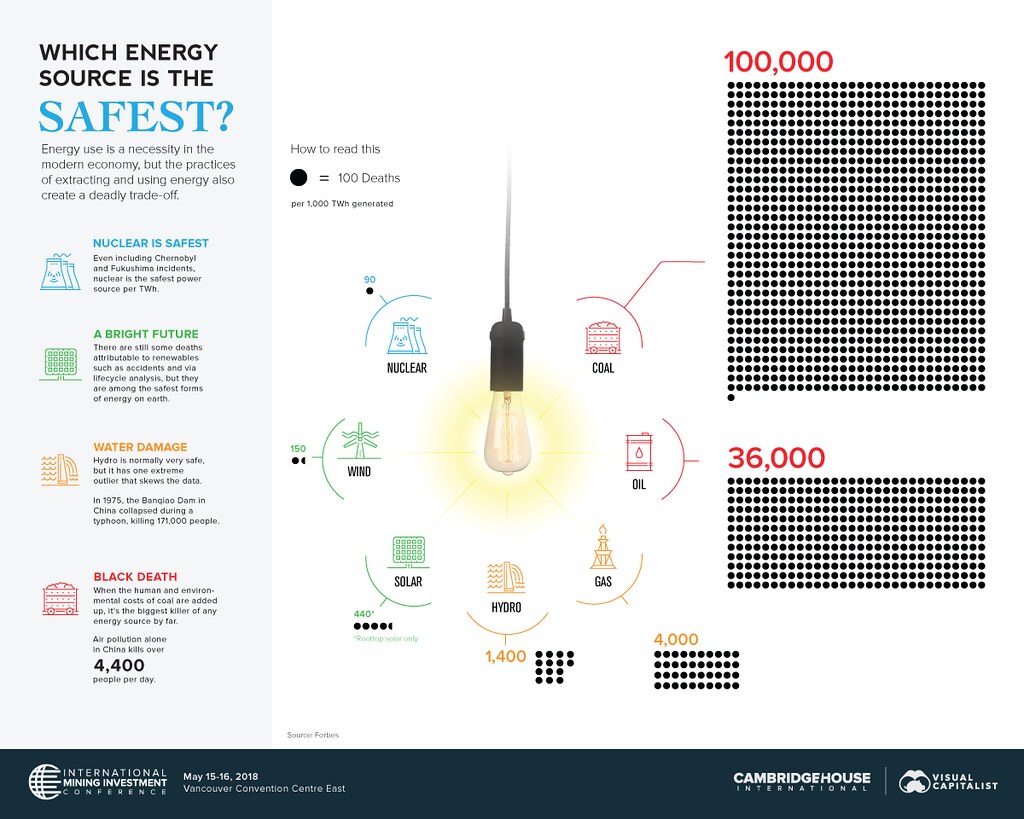To be fair not all Geography teachers are qualified scientists.
Safer than most, but safest is a pretty high bar. There's working at heights issues with wind farms and domestic solar panels but they're pretty damned safe.
Armed guards is an example. There is a lot of maintenance cost for a nuclear plant. I don't think anyone can disagree that in the UK it's a really expensive way to get base load power. That's just the reality we live in.
It's also a type of power that doesn't play well with other power types, it can't scale up or down fast so it is only able to do base load.

Safest.
And this is using an outdated measure of radiation risk (linear, no-threshold model), which is almost certainly wrong, which puts nuclear as being even safer.
Also, wind will get more expensive, as you increase the capacity. Why? Well, as you have to have more and more capacity to provide back up energy, it becomes less economic, as you need more capacity to provide the amount of energy, and you need the infrastructure of storage and added cabling.
I'm not against wind/solar, but they have their limitations.
The idea that wind kills loads birds is outdated BTW.

